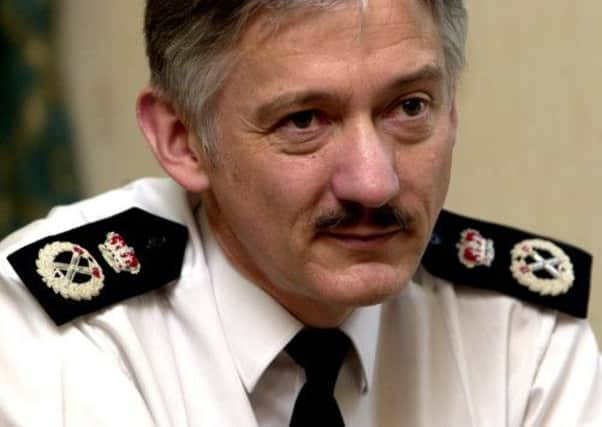Supergrass handler ‘would have escaped with written warning’


John Feavyour, who was the Association of Chief Police Officers’ (Acpo) lead on complaints and discipline, said the conduct of former Dc John Daniels, who faced 19 separate allegations of misconduct including lying in court, would have warranted only a minor admonishment, reprimand or written warning.
He also stated that West Yorkshire Police were right not to discipline any of the five officers it received files on from North Yorkshire Police following an extensive criminal and disciplinary inquiry.
Advertisement
Hide AdAdvertisement
Hide AdMr Feavyour, Cambridgeshire’s deputy chief constable, had been asked to formally review West Yorkshire’s internal inquiry which last year found it had been correct not to discipline the five officers who faced allegations over the handling of Karl Chapman.
Chapman was able to get drunk and take drugs in police custody and received thousands of pounds in payments and rewards in improper inducements to give evidence which were not disclosed to court. As a result, convictions for murder and other serious offences were quashed in 2009.
Dc Daniels was Chapman’s primary police handler for five years. A 2011 Supreme Court judgement detailing some of the misconduct found the officer lied in court about the scale of inducements lavished on the supergrass.
Mr Feavyour’s review was provided in response to a freedom of information request but both West Yorkshire Police and Police Commissioner Mark Burns-Williamson have withheld names of officers and officials involved.
Advertisement
Hide AdAdvertisement
Hide AdHowever, the Yorkshire Post has established that the only officer of five who had final disciplinary files prepared in 2006 who Mr Feavyour did believe could have been disciplined was Dc Daniels.
Mr Feavyour’s review said: “I consider that (Dc Daniels) could have faced disciplinary action in respect of his abuse of policy and procedures. I cannot conceive that he did not know that he had become too close to (Karl Chapman) and on my assessment of the material in the bundle provided I believe that it is more likely than not that matters could have been substantiated against him amounting to misconduct.”
It added: “In the light of all the circumstances described in the evidential review file and the conclusions which I have come to, I consider that a sanction in the terms of a reprimand or a written warning would have been appropriate should such a matter have been found against him.”
The minor sanction for a series of allegations which included breaches of honesty and integrity which would usually result in dismissal appears to stem from Mr Feavyour’s contention that Dc Daniels and the other officers should not face action if no senior officers were to be disciplined.
Advertisement
Hide AdAdvertisement
Hide AdThe highest-ranking officer of the five facing potential disciplinary action was a sergeant as all the senior officers involved in the handling of Chapman had retired.
Mr Feavyour said the “systematic failure” of West Yorkshire Police was important when considering disciplinary action.
He added: “It is wholly inappropriate in my view that the most junior officers in any part of the organisation should take full responsibility for their actions, even when they are inappropriate actions, in the absence of their managers also being held to account where it is apparent that those self-same managers condoned or, in any event, turned a blind eye to the misconduct concerned.”
The force solicitor had concluded that disciplinary action against junior officers in the absence of senior officers would have been “wholly untenable and an abuse of process”. Mr Feavyour said an abuse of process argument was likely to succeed though not inevitable but said the decision to take no disciplinary action had been “entirely reasonable”.
Advertisement
Hide AdAdvertisement
Hide AdMr Feavyour declined to comment when asked whether he would expect police officers to take a similar attitude if, for example, low-level drug dealers were apprehended but not those higher up the supply chain.
Instead of responding to specific questions, Mr Feavyour pointed to a paragraph in his report which referred to the findings of a national review of police misconduct probes carried out by former City of London Police commissioner William Taylor which resulted in changes to regulations in 2008.
Mr Feavyour said Mr Taylor’s view was that serious misconduct should be dealt with “expeditiously” and by dismissal if necessary but that his “overarching concern was that where mistakes were identified including systematic failings of the organisation, then matters should be brought swiftly to a conclusion and appropriate learning taken on board with a view to improving the organisation and its method of operation.
“I cannot conceive that West Yorkshire Police has other than long since taken steps to address the failings identified by Operation Douglas and any suggestion of any misconduct proceedings should have a very firm line drawn underneath it and the matter closed.”